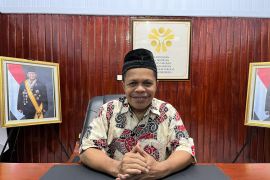Japan has requested approval to conduct a second feasibility study based on the same protocols as China`s study.Jakarta (ANTARA News) - Japan has sought the Indonesian governments approval to conduct a second feasibility study for the Jakarta-Bandung high speed train project, a senior official stated.
Japan has requested approval to conduct a second feasibility study based on the same protocols as Chinas study. Previously, Japan had conducted a feasibility study based on different protocols.
"The protocols used in the Japanese feasibility study are different from those used in the Chinese study. Japan now wants to follow the same protocols used by China," Bambang Prihartono, the transportation director of the National Development Planning Ministry, stated here on Wednesday.
He said that the government has not yet arrived at a decision regarding the request of the Japanese investors.
The difference in the protocols used in the feasibility studies conducted by Japan and China reveal the differences in the length of tracks and investment value for the Jakarta-Bandung fast train project.
The Indonesian government aims to arrive at a decision within August and September 2015, to partner with either Japan or China to develop the Jakarta-Bandung fast train project.
Minister for National Development Planning/Head of National Development Planning Board (Bappenas) Sofyan Djalil remarked on August 15, 2015, that the government would set up a team of independent consultants comprising members from various countries to assess the feasibility studies and proposals submitted by Japan and China.
The observations of the team would be handed over to the governments appraiser team.
While deciding its partner for the high speed train project, the government will consider factors such as the investment value, technology, use of local content, passenger ticket prices, and its impact on the economy.
The Indonesian fast train project is similar to Japans Shinkanse train network, with a cruising speed of 300 kilometers per hour, and will cover the Jakarta-Bandung route. However, in the Japanese feasibility study, it was suggested to extend the connectivity until Cirebon and also Surabaya.
For the Jakarta-Bandung route, the fast trains will reduce the travel time from three hours to 37 minutes.
Japan had earlier conducted its first-phase feasibility study. According to the Bappenas, the Japanese feasibility study had projected the investment value for the project at US$6.2 billion.
China conducted a feasibility study after Japan. In the Chinese proposal, the investment needed for the construction of railway and train project was only US$5.5 billion.(*)
Editor: Heru Purwanto
Copyright © ANTARA 2015











